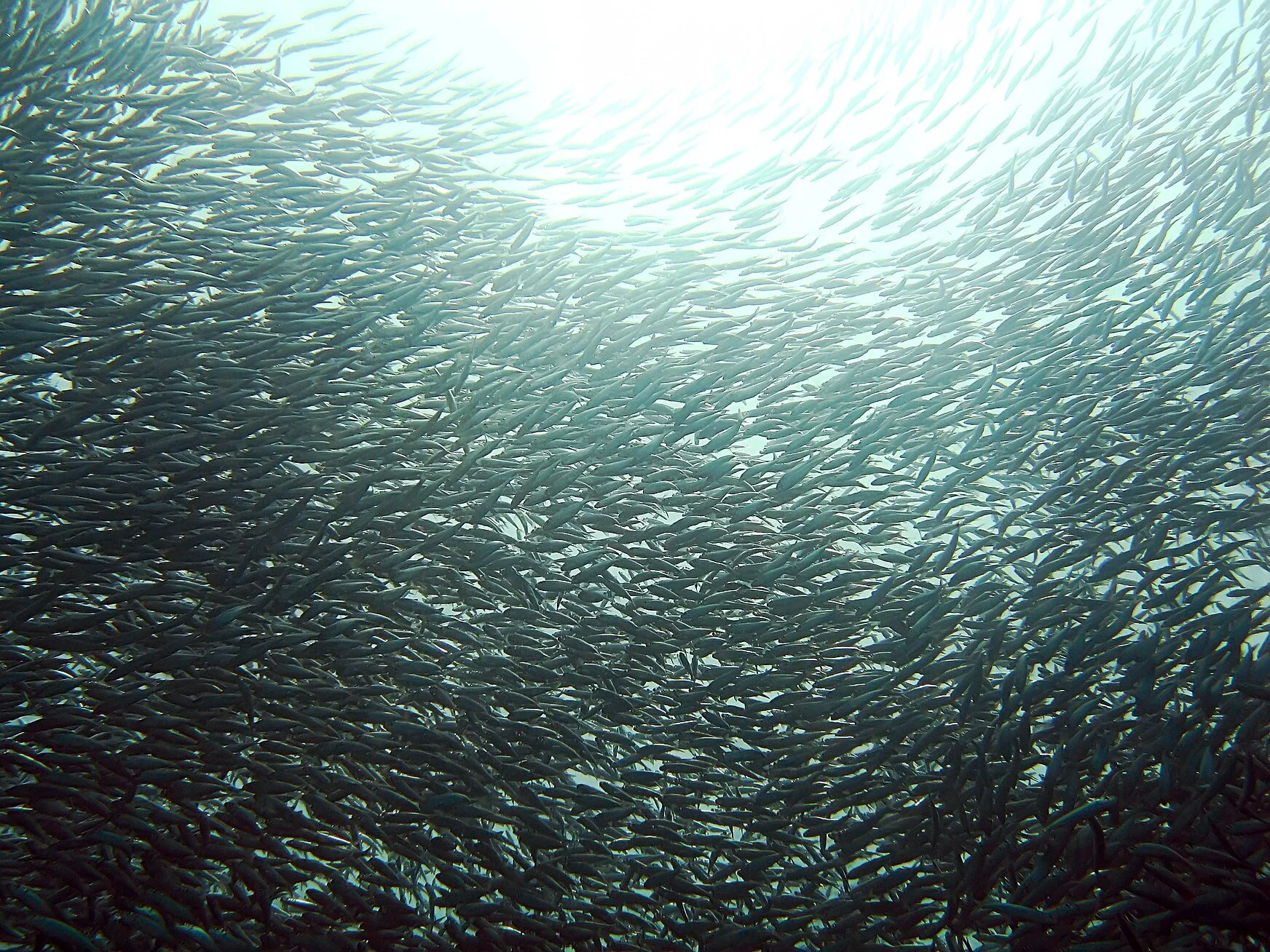The biomass of European sardine (Sardina pilchardus) has greatly decreased since the 2000s. According to some studies, this is likely due to changes in the marine environment off Western Iberia, which may be decreasing the survival odds of early-life stages of sardine (Cabrero et al. 2019; Szalaj et al. 2021). Sardines have short life cycles and can be very fragile in their first weeks of life, thereby being extremely dependent on the environment they inhabit to be able to grow and become adults (e.g., Garrido et al. 2016). The process by which fish transition between these two stages of their life cycle (i.e., from very young, small larvae to older, larger fish) is called “biological recruitment”.
As sardines are the most abundant and socio-economically important small pelagic fish species living in the Western Iberia Upwelling Ecosystem, their tendency to produce less productive fish stocks is may significantly disturb the ocean’s capacity to provide ecosystem services for socio-economic activities which are deep-rooted in fishing industries.
Sardines are small epipelagic fish that sometimes migrate along the coast in large shoals, feeding on plankton and providing an important source of food larger forms of marine life. Image credits here.
While the specific drivers of such decline are still unclear, the recruitment of small pelagic fish is mostly dependent on environmental factors, such as the temperature of the ocean. Previous studies report warmer Atlanto-Iberian waters to be linked to lower sardine abundance, recruitment, and landings (e.g., Garrido et al., 2017; Szalaj et al., 2021), a scenario which could intensify the future according to IPCC-based global projections (IPCC, 2021) of rising SSTs off Western Iberia in response to climate change (Lima et al., 2022; Szalaj et al., 2022).
To better identify the key drivers of sardine recruitment off Iberia, PRIMUS members Afonso Ferreira, Vanda Brotas and Ana C. Brito from MARE-FC.ID, and Susana Garrido and Ana Teles-Machado from IPMA, have recently published a spatiotemporal study based on a broad suite of atmospheric, oceanographic, and biological variables spanning 1998–2020 (22 years) extracted from satellite datasets. These data were then related to in situ recruitment estimates obtained from yearly spring acoustic surveys carried out along two different hotspots of sardine recruitment of the southern Iberian sardine stock (NW Portugal and Gulf of Cadiz). The paper has just been published at Science of the Total Environment, and represents the second scientific output from PRIMUS.
In this study, Afonso Ferreira and colleagues report on SST being the main driver of sardine recruitment in Atlanto-Iberian waters, followed by specific physical conditions favouring larval feeding and retention, such as ocean mixed layer shallowing and onshore transport. High sardine recruitment in NW Iberia was associated with optimal conditions in the winter (January–February), while recruitment optimal conditions off the Gulf of Cadiz were more often found during late autumn and spring.
Yearly sardine recruitment (millions; green), spawning stock abundance (millions; black; SSA), and total landings (tons; grey bars) from 1996 to 2020 for the NW Portuguese Coast (NW) and the Gulf of Cádiz (GoC). The dashed green line corresponds to the statistically significant linear trend observed for SSA in the GoC: y = −151.41x + 305,916.09 (N = 23, R = −0.65, p-value = 0.0007).
The findings from this study provide valuable insights about the dynamics of sardine populations off Iberia, which are a valid addition towards contributing to the sustainable management of sardine stocks in Atlanto-Iberian waters, particularly under the current scenario of climate change.
If you want to know more about this novel study, click here.
Ferreira, A. Garrido, S., Costa, J.L., Teles-Machado, A., Brotas, V., Brito, A.C., 2023. What drives the recruitment of European sardine in Atlanto-Iberian waters (SW Europe)? Insights from a 22-year analysis. Science of the Total Environment 881 (2023) 163421.

